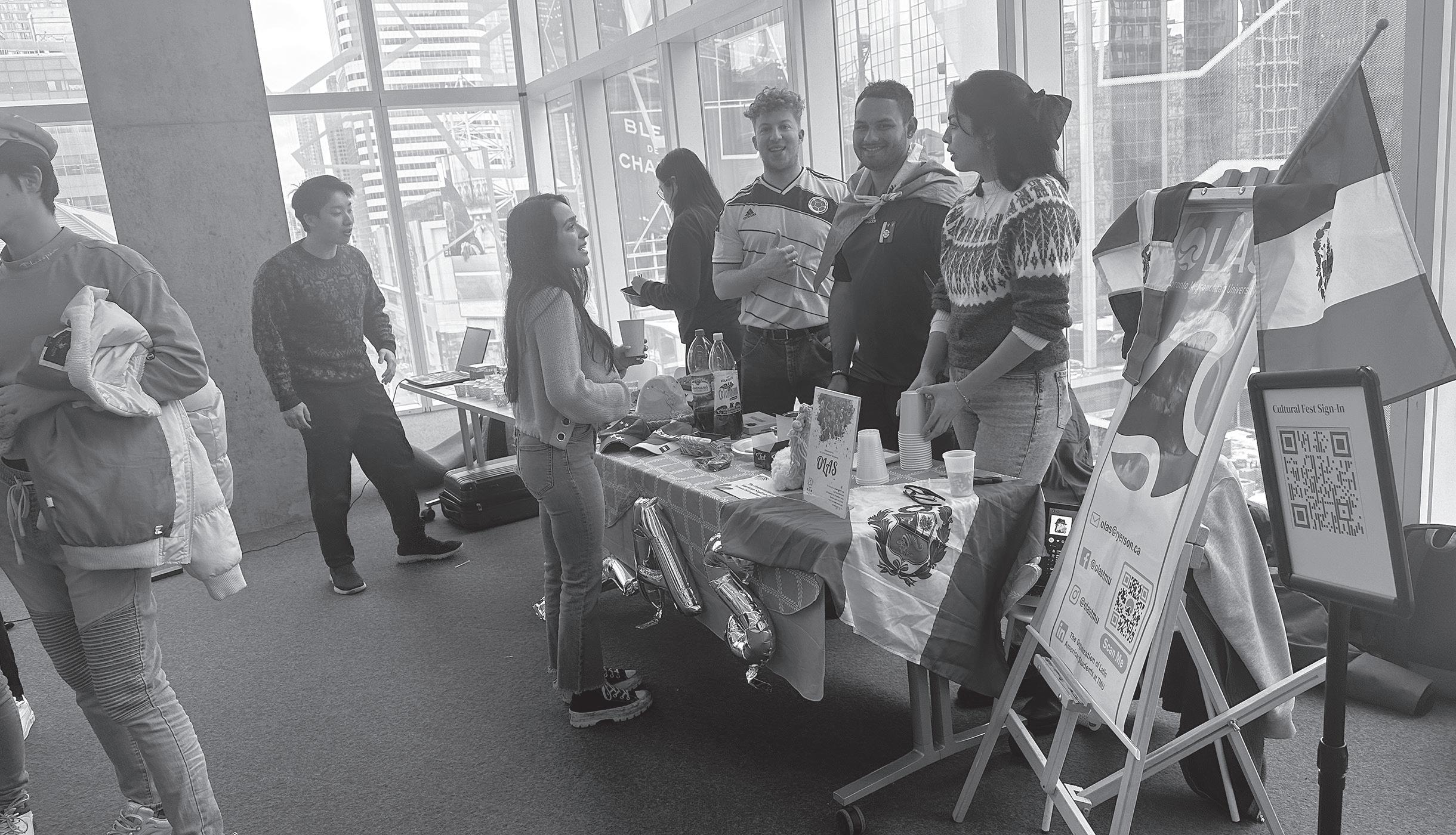
3 minute read
How weed stores near TMU compete for students’ business
from Vol 56 Issue 19
By Anthony Lippa-Hardy
As cannabis stores continue to pop up around campus, some Toronto Metropolitan University (TMU) students and experts are wary of store density, saying prices are still high and the amount of dispensaries seems unsustainable.
Advertisement
Fourth-year politics and governance student Jenna Yakabuski said there are too many independent dispensaries with high prices.
“As much as I do support small businesses like that, the pricing is not really an option for students,” said Yakabuski.
Vince Cabansag, a first-year professional communications student, said he goes to dispensaries because the atmosphere makes him feel safe. He chooses stores that have different customer experiences. “[With some stores] I go there just because as soon as I walk in they have good vibes and good music.” that the products that we carry are the same as other places,” said Shefsky. ing bought and sold is being bought on the illicit market,” he said.
But with high costs, he has to find a way to save money. “I go to different places because if some shops only take cash, they have cheaper prices,” he said.
As of March 2023, there are five cannabis stores around Yonge and College Streets alone, including two Tokyo Smokes within a 1 km radius of each other.
To attract students at lower price points, some dispensary managers said their stores use special discounts and cheaper products to appeal to students.
Tokyo Smoke, Fire and Flower and Body and Spirit Cannabis offer student discounts as an incentive. The latter, located just a twominute walk away from campus at 361 Yonge Street, offers a 15 per cent discount to students.
On the other hand, as students grapple with high prices, experts warn the lack of diversity in product options could lead to dispensaries around TMU struggling to maintain a competitive edge.
Bradley Poulos, a business professor at TMU, said there isn’t enough variety in the local dispensaries’ products which makes it difficult for stores to compete.
He said while a business model like an auto mall—where several car dealerships are placed together—works, this is not the case for weed stores. “[Cannabis store products] are not different enough from each other,” said Poulos.
“The retailers, they’re still fighting the black market,” said Poulos.

The black market refers to the “illegal trading of goods that are not allowed to be bought and sold, or that there are not enough of for everyone who wants them,” according to Cambridge University Press and Assessment.
Jonathan Shefsky, manager at Body and Spirit Cannabis, said the store tries to tailor its services to students by quickly getting new products on the shelves. “[Other stores] actually take a couple of days to input all of their products. We do it in a couple of hours,” said Shefsky.
Body and Spirit targets the student demographic by getting popular products and making them available for purchase quicker than the other local dispensaries. Shefsky said the store tries to bring in a wide selection of cheap cannabis flowers and pre-rolls, as those products are favoured among students.

“[Students] come to us because they know we will always give them the student discount and they know
Data from Statistics Canada shows that the average legal price of cannabis at the end of 2019 was $10.30 per gram, while the average price of illegal cannabis was $5.73. It also showed that while legal cannabis prices increased by about 6.3 per cent from the previous year, illegal prices decreased by around 11 per cent.
Hathaway said that a competitive advantage most dispensaries have over the black market is better quality products. Both Poulos and Hathaway said that most often dispensaries are also safer than cannabis products bought illegally.
Andrew Hathaway, an associate professor in sociology & anthropology at the University of Guelph, said many people still purchase their cannabis products illegally.
“About 40 per cent of all weed be-
This is mainly due to the regulations dispensaries must follow to ensure their products meet the federal standards and aren’t made with any dangerous chemicals or contaminants, said Hathaway.
“To a certain degree weed is weed and you like the stuff that tastes better,” said Hathaway. “There’s a slight difference sometimes in terms of the way it makes you feel.”
But for Cabansag, price is more important as a student. “Quality wise, weed is weed,” he echoes. “Some stores are just way [too] expensive today.”










